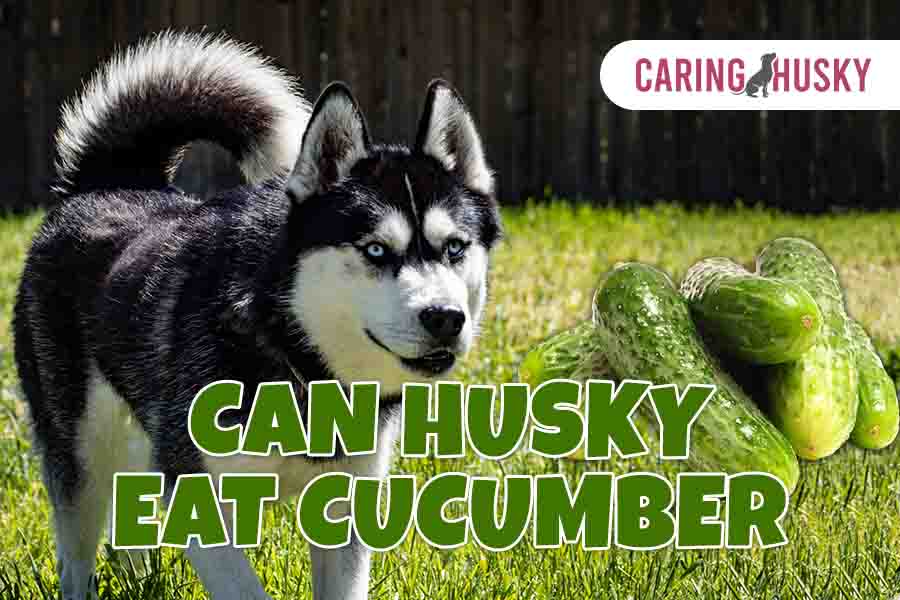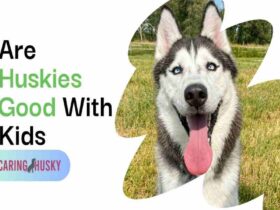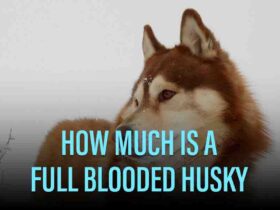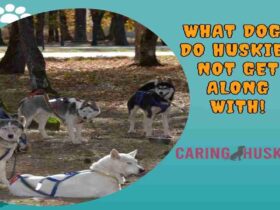Even the simplest food choices can significantly impact our furry friend’s health and well-being. This article delves into a rather curious question: “Can Huskies Eat Cucumber?” This might seem like a straightforward query, but as any husky owner knows, these energetic canines have unique dietary needs that require careful consideration. Through exploring the compatibility of cucumbers with a husky’s diet, we not only uncover the dos and don’ts of feeding this crisp vegetable but also offer a glimpse into the broader aspects of maintaining a husky’s health through nutrition. Join us as we navigate the ins and outs of integrating cucumbers into your husky’s diet, ensuring a happy, healthy, and well-fed companion.
Can Husky Eat Cucumber?
Huskies can eat cucumbers! Cucumbers are a safe and healthy treat for these energetic dogs. They’re low in calories, high in water content, and contain essential vitamins and minerals beneficial for your husky’s health. However, it’s important to introduce cucumbers (or any new food) gradually to your husky’s diet to avoid digestive upset. Also, ensure the cucumber is fresh and free from seasonings or dressings. As with all treats, moderation is key – cucumbers should not replace a husky’s balanced diet but can be a refreshing addition, especially on warm days. Every dog is different, so it’s always a good idea to consult your vet before introducing new foods.
Overview Of Huskies’ Dietary Requirements
Huskies, known for their striking appearance and energetic nature, have specific dietary requirements to maintain their health and vitality. Here’s an overview of their nutritional needs:
High-Quality Protein: Protein is a critical component of a husky’s diet, supporting muscle development and repair. Huskies benefit from high-quality protein sources like lean meats, fish, and poultry. The protein content should be appropriate for their age, activity level, and health status.
Balanced Fats: Fats are crucial for energy, especially for active breeds like huskies. They need a balanced intake of omega-3 and omega-6 fatty acids, which support skin and coat health. Sources can include fish oils, flaxseed, and certain meats.
Carbohydrates: While not as critical as protein and fat, carbohydrates are still important in a husky’s diet. They provide energy and help in digestion. Good sources include whole grains, vegetables, and some fruits. It’s important to ensure that carbs are not the dominant part of their diet.
Vitamins and Minerals: A balanced intake of vitamins and minerals is essential for a husky’s overall health. These can be provided through meats, vegetables, fruits, and specially formulated dog foods. Supplements might be necessary depending on their specific health needs.
Moderation in Treats: While treats like cucumbers can be beneficial, they should only be a small part of the husky’s diet. Over-reliance on treats can lead to nutritional imbalances and weight issues.
Age and Activity Considerations: The dietary needs of huskies change with age and activity level. Puppies, adult dogs, and seniors have different nutritional requirements, as do highly active dogs compared to less active ones.
Avoiding Harmful Foods: Certain foods are toxic to dogs and should be avoided, such as chocolate, grapes, onions, and xylitol (a sweetener found in some sugar-free products).
How Do You Safely Introduce Cucumbers To A Husky’s Diet?
Introducing cucumbers to a husky’s diet should be done gradually and with care to ensure it’s a safe and enjoyable experience for your pet. Here are the steps to follow:
Start with Small Portions:
Start by offering your husky a small cucumber to see how it reacts to it. This helps determine if they like the taste and how their body reacts to this new food.
Observe for Any Adverse Reactions:
After feeding them a small piece, monitor your husky for signs of digestive upset or allergic reactions. Common signs to watch include excessive gas, diarrhea, vomiting, or discomfort.
Increase the Amount Gradually:
If your husky shows no adverse reactions and seems to enjoy the cucumber, you can slowly increase the amount over time. However, cucumbers should always be given as a treat, not a central part of their diet.
Serve Cucumbers Properly:
Ensure the cucumber is fresh and washed to remove pesticides or chemicals. It’s best to serve it raw without adding seasonings or dressings. You can cut it into small, bite-sized pieces to make it easier for your husky to eat.
Mix with Regular Food:
Mixing cucumber with their regular food can be an excellent way to introduce it to some dogs. This can help them get used to the taste and texture of the cucumber in a familiar context.
Avoid Overfeeding:
Even though cucumbers are low in calories, it’s important not to overfeed them. Treats, including cucumbers, should not make up more than 10% of a dog’s daily caloric intake.
Other Safe Vegetables And Fruits For Huskies
Huskies can enjoy a variety of fruits and vegetables as part of a balanced diet. These foods can provide essential vitamins, minerals, and fiber but should always be given in moderation. Here’s a list of safe fruits and vegetables for huskies:
- Carrots: High in fiber and beta-carotene (which converts to vitamin A), carrots are great for a husky’s teeth and overall health. They can be given raw or cooked.
- Apples: A good source of vitamins A and C, apples are healthy for huskies when seeds and core are removed. They should be served in small portions.
- Blueberries: Rich in antioxidants, blueberries are a nutritious treat for huskies. They can help with urinary health and provide vitamin C and fiber.
- Watermelon: Without the rind or seeds, watermelon is a hydrating treat, especially on hot days. It’s low in calories and high in vitamins A, B, and C.
- Green Beans: These are an excellent low-calorie snack rich in iron and vitamins. Ensure they are plain and free from added salt or seasonings.
- Pumpkin: Plain, cooked pumpkin (not pumpkin pie filling) is excellent for digestive health and is a good source of fiber and vitamin A.
- Sweet Potatoes: Cooked sweet potatoes are a great source of fiber, vitamin B6, vitamin C, and beta-carotene. They should be served in moderation.
- Bananas: In small amounts, bananas can be a good low-calorie treat with potassium and vitamins.
- Pears: Pears are high in copper, vitamins C and K, and fiber. Make sure to remove the pit and seeds before serving.
- Broccoli: This vegetable is high in fiber and vitamin C and can be given in tiny quantities to avoid stomach upset.
When To Consult A Veterinarian?
Consulting a veterinarian is an essential aspect of maintaining your husky’s health and well-being, especially regarding their diet and nutrition. Here are several scenarios when it’s essential to seek the advice of a veterinarian:
Before introducing new foods or supplements or making significant changes to your husky’s diet, it’s important to consult with a vet. They can guide you on the suitability and safety of these changes, ensuring they meet your dog’s nutritional needs without causing imbalances or health issues.
If your husky shows signs of a food allergy or intolerance, such as excessive itching, skin irritations, gastrointestinal upset, or ear infections, a vet can help diagnose the issue and suggest alternative dietary options.
If you notice unexpected weight gain or loss in your husky, this could indicate underlying health issues or dietary imbalances. A veterinarian can help identify the cause and recommend necessary dietary adjustments or treatment.
Ongoing issues like diarrhea, vomiting, or constipation are signs of something wrong with your husky’s diet or health. A vet can diagnose the problem and suggest dietary changes or treatments to alleviate these symptoms.
Changes in your husky’s behavior, appetite, or energy levels can often be linked to their diet or health conditions. A veterinarian can help determine whether these changes are diet-related and advise on the appropriate action.
For huskies with chronic conditions such as diabetes, arthritis, heart disease, or kidney issues, regular veterinary consultations are crucial. A vet can assist in managing these conditions through diet and medication, ensuring your husky maintains a good quality of life.
As huskies age, their nutritional requirements change. Regular veterinary check-ups are important to ensure their diet is adjusted to support their changing health needs, including considerations for joint health, digestive efficiency, and immune system support.
If your husky ingests something potentially toxic or dangerous, immediate veterinary attention is critical. This includes apparent toxins and foods harmful to dogs, like chocolate, grapes, onions, or xylitol.
Regular wellness check-ups are important even when your husky appears in good health. These visits allow your vet to monitor your dog’s overall health and dietary needs and make proactive adjustments as needed.
Conclusion
cucumbers are a safe and healthy treat for huskies, offering hydration and essential nutrients with minimal calories. While they can be a refreshing and enjoyable addition to a husky’s diet, it’s crucial to remember that moderation is vital. Always introduce new foods like cucumbers gradually and monitor your dog’s reaction. Maintaining a balanced diet for your husky is essential, ensuring that treats like cucumbers supplement but do not replace their regular, nutritionally complete meals. As always, every dog is unique, and what works for one may not work for another, so consulting with a veterinarian before introducing any significant dietary changes is advisable. By being mindful of these considerations, you can enjoy offering cucumbers to your husky as a healthy snack, contributing to their overall well-being and happiness.
FAQ’s
Are cucumber leaves toxic to dogs?
Cucumber leaves are not typically toxic to dogs but can cause gastrointestinal upset if consumed in large amounts. It’s always safer to stick to feeding dogs the cucumber fruit itself and avoid leaves or stems, as they can be harder to digest.
Is Tomato good for dogs?
Tomatoes are generally safe for dogs in small quantities, but the green parts of the plant are toxic. Ripe, red tomatoes can be a healthy treat in moderation, but avoiding green tomatoes and the plant’s leaves and stems is best.
Can dogs eat eggs?
dogs can safely eat cooked eggs, which are a great source of protein, vitamins, and fatty acids. However, they should be cooked without oil, butter, salt, or seasonings. Raw eggs should be avoided due to the risk of bacterial infection and enzyme inhibition.







Leave a Reply